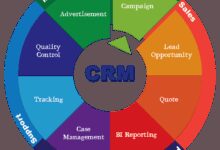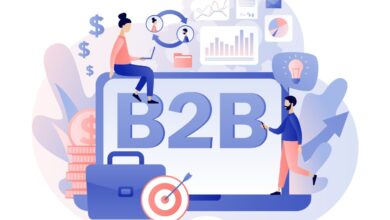B2B Companies: 7 Powerful Strategies to Dominate the Market
In today’s fast-paced digital economy, b2b companies are redefining how industries connect, collaborate, and grow. From tech startups to global manufacturers, these businesses thrive on relationships, innovation, and strategic value delivery.
What Are B2B Companies and How Do They Work?

B2B companies, or business-to-business companies, are organizations that sell products or services to other businesses rather than to individual consumers. This model underpins much of the global economy, from raw material suppliers to enterprise software providers. Unlike B2C (business-to-consumer) models, B2B transactions typically involve longer sales cycles, higher order values, and more complex decision-making processes.
The Core Definition of B2B Companies
At its essence, a B2B company operates by providing goods or services that help other businesses function, scale, or innovate. For example, a cloud computing provider like Amazon Web Services (AWS) offers infrastructure to tech firms, enabling them to build scalable applications without investing in physical servers.
- B2B companies serve other organizations, not end-users directly.
- Transactions are often based on contracts, bulk pricing, and long-term partnerships.
- The focus is on solving business problems, improving efficiency, or enabling growth.
“B2B is not just about selling to businesses—it’s about becoming an essential partner in their success.” — Industry Analyst, McKinsey & Company
Key Differences Between B2B and B2C Models
Understanding the distinction between B2B and B2C is crucial for anyone involved in commerce. While both models aim to generate revenue, their strategies, customer journeys, and marketing approaches differ significantly.
- Audience: B2B targets professionals and decision-makers; B2C targets individual consumers.
- Sales Cycle: B2B cycles are longer and involve multiple stakeholders; B2C decisions are often emotional and immediate.
- Pricing: B2B pricing is often customized and negotiated; B2C pricing is usually fixed and transparent.
For instance, a company like Salesforce sells CRM software to enterprises through tailored demos, contract negotiations, and integration support—processes rarely seen in consumer retail.
Types of B2B Companies Across Industries
B2B companies span a wide range of sectors, each with unique operational models and value propositions. These businesses form the backbone of supply chains, technological advancement, and industrial innovation.
Manufacturers and Industrial Suppliers
These b2b companies produce goods used in the creation of other products. For example, a steel manufacturer supplies raw materials to automotive companies. Their success depends on reliability, quality control, and cost-efficiency.
- Examples include Siemens, Bosch, and Caterpillar.
- They often operate globally with complex logistics networks.
- Digital transformation is pushing these firms toward predictive maintenance and IoT integration.
According to a report by McKinsey, industrial B2B companies that adopt digital tools see up to 25% improvement in operational efficiency.
Technology and SaaS Providers
One of the fastest-growing segments among b2b companies is the tech and Software-as-a-Service (SaaS) industry. These firms offer digital solutions that enhance productivity, data management, and communication.
- Examples include Microsoft Azure, Zoom for Business, and HubSpot.
- They rely on subscription-based revenue models and continuous product updates.
- Customer success and onboarding are critical components of their service delivery.
The global SaaS market is projected to reach $1.2 trillion by 2030, according to Gartner, highlighting the massive growth potential for tech-focused b2b companies.
Professional Services and Consulting Firms
These b2b companies provide expertise rather than physical products. They include management consultants, legal advisors, accounting firms, and marketing agencies.
- Firms like Deloitte, PwC, and Accenture fall into this category.
- Value is delivered through knowledge, strategy, and implementation support.
- Trust and reputation are paramount in client acquisition and retention.
These companies often use thought leadership—such as whitepapers, webinars, and case studies—to establish authority and attract high-value clients.
How B2B Companies Generate Revenue and Scale
Revenue generation in b2b companies differs significantly from consumer-focused models. It’s less about volume and more about value, longevity, and relationship depth. Understanding these dynamics is key to sustainable growth.
Subscription and Licensing Models
Many modern b2b companies, especially in the software space, use recurring revenue models. Subscriptions allow for predictable income and deeper customer engagement over time.
- Adobe shifted from one-time software sales to a subscription model with Creative Cloud, increasing customer retention.
- Annual or monthly licensing fees provide steady cash flow and reduce dependency on new sales.
- Upselling and cross-selling opportunities arise as clients expand usage.
This model also enables companies to invest in continuous improvement, knowing they have a stable revenue base.
Long-Term Contracts and Enterprise Agreements
B2B relationships often culminate in multi-year contracts, especially in industries like telecommunications, IT infrastructure, and manufacturing.
- These agreements lock in pricing, service levels, and deliverables.
- They reduce churn and provide forecasting accuracy for both parties.
- Negotiations can take months, involving legal, technical, and financial teams.
For example, a telecom provider might sign a five-year deal with a logistics company to ensure nationwide connectivity for its fleet—demonstrating how b2b companies create tailored, scalable solutions.
Value-Based Pricing Strategies
Unlike cost-plus pricing, value-based pricing sets prices according to the perceived or actual value delivered to the client.
- A cybersecurity firm might charge based on risk reduction rather than number of endpoints.
- Consulting firms often price projects based on expected ROI for the client.
- This approach aligns the vendor’s success with the customer’s outcomes.
According to Harvard Business Review, companies using value-based pricing report 15–25% higher profit margins than those using traditional pricing models.
The Role of Digital Marketing in B2B Companies
While traditional sales methods still play a role, digital marketing has become the engine driving lead generation, brand awareness, and customer engagement for b2b companies.
Content Marketing and Thought Leadership
B2B buyers are highly informed and research extensively before making decisions. Content marketing helps companies position themselves as trusted advisors.
- Blogs, whitepapers, case studies, and eBooks educate prospects at every stage of the funnel.
- HubSpot, for instance, built its entire brand around inbound marketing content.
- SEO-optimized content ensures visibility when buyers search for solutions.
A study by Content Marketing Institute found that 70% of B2B marketers prioritize content creation as their top strategy.
Social Media and LinkedIn Strategy
Social media isn’t just for B2C. For b2b companies, platforms like LinkedIn are essential for networking, lead generation, and brand building.
- LinkedIn allows direct outreach to decision-makers through InMail and connection requests.
- Company pages showcase expertise, employee stories, and product updates.
- Paid advertising on LinkedIn targets users by job title, industry, and company size.
For example, IBM uses LinkedIn to share AI insights, host virtual events, and recruit talent—demonstrating a holistic B2B social strategy.
Email Marketing and Lead Nurturing
Email remains one of the most effective tools for nurturing leads in the B2B space. Automated workflows guide prospects through the buyer’s journey with personalized content.
- Drip campaigns deliver educational content based on user behavior.
- Newsletters keep existing clients informed about updates and best practices.
- Lead scoring helps sales teams prioritize high-intent prospects.
According to Mailchimp, segmented and targeted email campaigns generate 58% of all revenue in B2B marketing.
Challenges Faced by B2B Companies Today
Despite their critical role in the economy, b2b companies face numerous challenges that can impact growth, profitability, and competitiveness.
Long and Complex Sales Cycles
One of the biggest hurdles for b2b companies is the extended time it takes to close deals. Multiple stakeholders, budget approvals, and technical evaluations slow down the process.
- A single sale can take 6–12 months or longer.
- Lost opportunities due to delayed decisions are common.
- Sales teams must maintain consistent follow-up without being intrusive.
To combat this, many companies are adopting sales enablement tools like 6sense to predict buyer intent and accelerate conversions.
Customer Retention and Churn Management
Acquiring a new B2B customer can cost five times more than retaining an existing one. Yet, churn remains a persistent issue, especially in subscription-based models.
- Poor onboarding, lack of support, or unmet expectations lead to cancellations.
- Competitors offering lower prices or better features can lure clients away.
- Proactive account management is essential to prevent attrition.
Companies like Zendesk use customer success managers to ensure clients achieve their goals, reducing churn by up to 30%.
Adapting to Digital Transformation
Legacy b2b companies often struggle to modernize their operations, sales processes, and customer experiences.
- Outdated CRM systems hinder data-driven decision-making.
- Resistance to change within leadership slows innovation.
- Investing in new technologies requires capital and expertise.
However, those that embrace digital tools—like AI-powered analytics, automation, and cloud platforms—gain a significant competitive edge.
Innovation and Technology Driving B2B Companies Forward
Technology is no longer just a support function—it’s the core driver of growth, efficiency, and differentiation for b2b companies.
Artificial Intelligence and Predictive Analytics
AI is transforming how b2b companies understand customer behavior, forecast demand, and personalize interactions.
- AI-powered chatbots handle initial inquiries and qualify leads 24/7.
- Predictive analytics identify which accounts are most likely to convert or churn.
- Machine learning optimizes pricing and inventory management.
For example, IBM Watson helps B2B firms analyze vast datasets to uncover hidden patterns and opportunities.
Automation in Sales and Marketing
Marketing automation platforms like Marketo and Pardot allow b2b companies to scale outreach without sacrificing personalization.
- Automated email sequences nurture leads based on engagement.
- CRM integrations ensure seamless handoffs between marketing and sales.
- Behavioral triggers send timely messages when a prospect visits a pricing page or downloads a guide.
This level of automation increases conversion rates by up to 45%, according to Marketo.
Cloud Computing and Scalable Infrastructure
Cloud platforms enable b2b companies to scale rapidly, reduce IT costs, and improve collaboration.
- Startups can launch globally without building data centers.
- Remote teams access tools and data securely from anywhere.
- Disaster recovery and uptime are managed by providers like Google Cloud and AWS.
The shift to cloud-based operations has been accelerated by the rise of hybrid work models, making it a non-negotiable for modern b2b companies.
Future Trends Shaping the Evolution of B2B Companies
The landscape for b2b companies is evolving at an unprecedented pace. Emerging trends are redefining how these businesses operate, compete, and deliver value.
The Rise of E-Commerce Platforms for B2B
Just as consumers shop online, businesses are increasingly turning to digital marketplaces and self-service portals to purchase supplies and software.
- Platforms like Alibaba, ThomasNet, and Amazon Business cater specifically to B2B buyers.
- Self-service onboarding allows clients to sign up and start using software instantly.
- Transparent pricing and product comparisons reduce friction in procurement.
A Forrester study predicts that by 2025, 70% of B2B purchases will be made through digital channels.
Sustainability and Ethical Sourcing
Corporate responsibility is no longer optional. B2B buyers are demanding sustainable practices from their suppliers.
- Companies must report on carbon emissions, waste reduction, and ethical labor practices.
- Sustainable packaging and green logistics are becoming competitive advantages.
- B2B firms that align with ESG (Environmental, Social, Governance) standards attract more clients and investors.
For example, Unilever’s Sustainable Living Plan has influenced its entire supply chain, pushing b2b partners to adopt greener practices.
Hyper-Personalization Through Data
Generic messaging no longer works. B2B buyers expect personalized experiences based on their industry, role, and past interactions.
- Dynamic website content changes based on visitor profile.
- Emails reference recent engagements or specific pain points.
- Sales reps receive real-time insights before client calls.
Using data to tailor every touchpoint increases conversion rates and strengthens relationships.
What defines a B2B company?
A B2B company is a business that sells products or services to other businesses, rather than to individual consumers. These companies operate in sectors like manufacturing, technology, consulting, and logistics, focusing on solving business challenges through long-term partnerships and value-driven solutions.
How do B2B companies differ from B2C companies?
B2B companies typically have longer sales cycles, higher transaction values, and more complex decision-making processes involving multiple stakeholders. In contrast, B2C companies focus on emotional appeals, shorter purchase journeys, and mass-market strategies.
What are the most effective marketing strategies for B2B companies?
The most effective strategies include content marketing, LinkedIn outreach, email nurturing, and account-based marketing (ABM). Thought leadership, SEO, and data-driven personalization also play critical roles in attracting and converting high-value clients.
Why is customer retention important for B2B companies?
Customer retention is crucial because acquiring new B2B clients is significantly more expensive than retaining existing ones. Long-term contracts and recurring revenue models mean that loyal customers contribute to stable income and predictable growth.
What role does technology play in modern B2B companies?
Technology enables automation, data analytics, AI-driven insights, and cloud scalability. It empowers b2b companies to streamline operations, enhance customer experiences, and stay competitive in a rapidly evolving digital marketplace.
As the global economy becomes increasingly interconnected, b2b companies are at the heart of innovation, efficiency, and industrial progress. From leveraging AI and automation to embracing sustainability and digital commerce, these organizations must continuously adapt to thrive. By focusing on value creation, customer-centric strategies, and technological advancement, b2b companies can not only survive but dominate their markets in the years ahead.
Further Reading:









